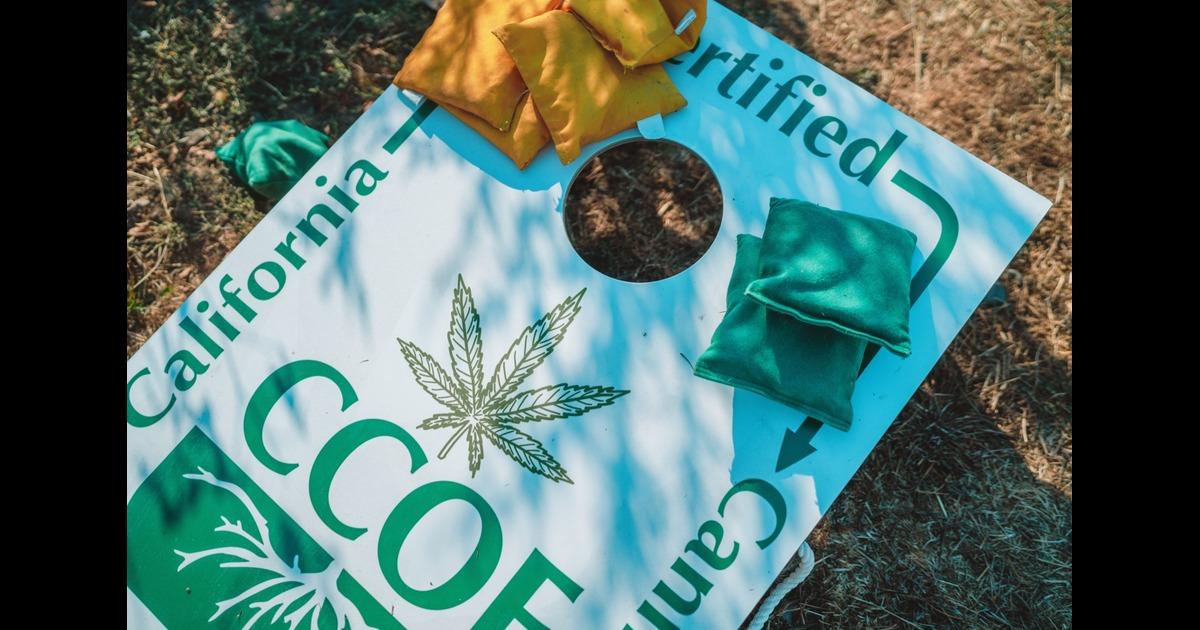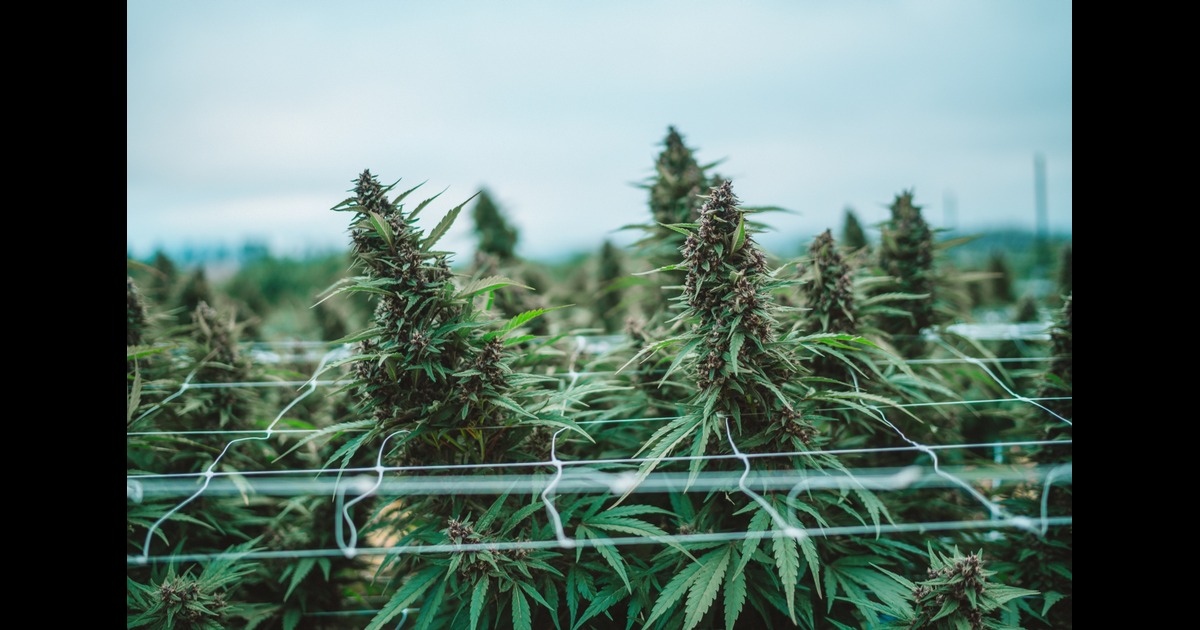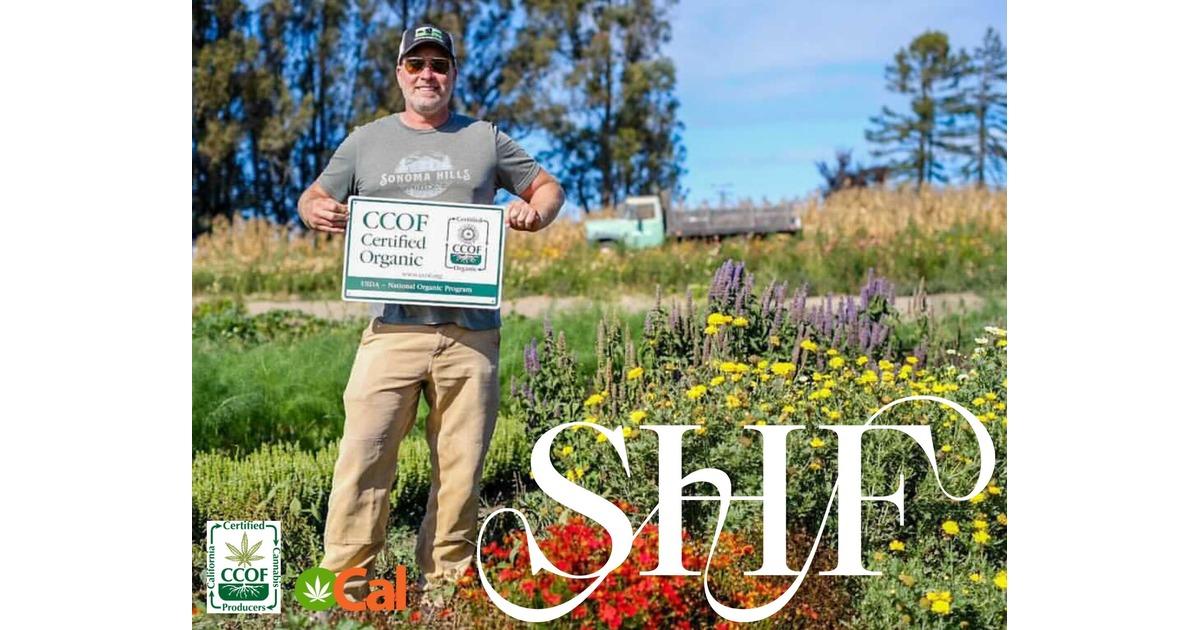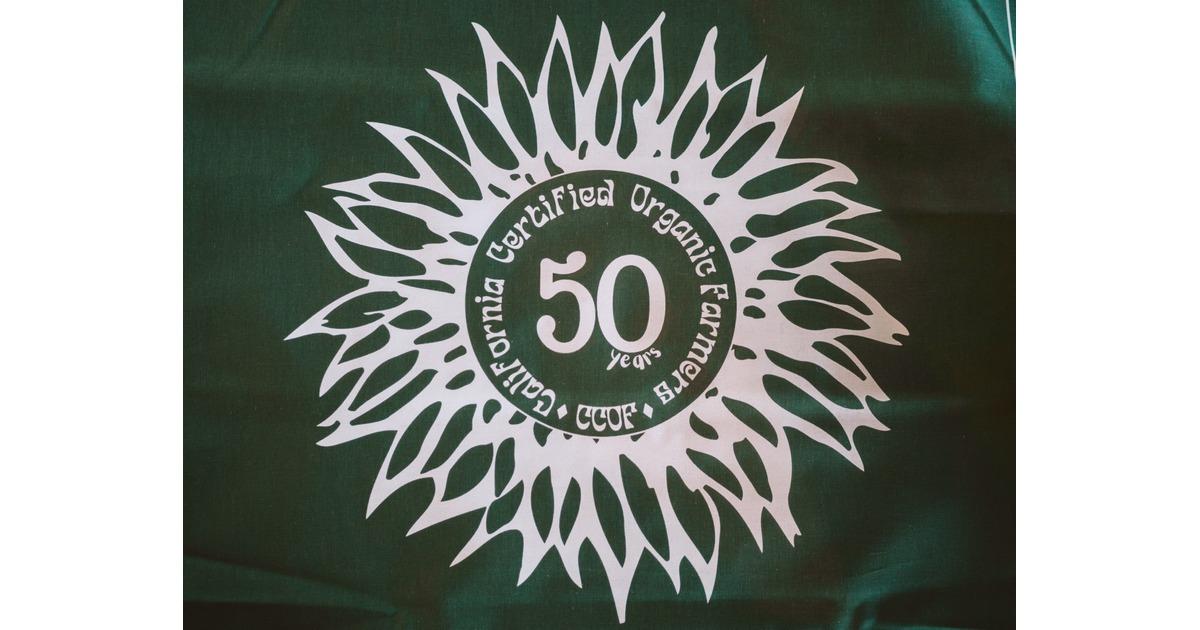Sonoma Hills Farm Earth Day
Nestled in the Petaluma Gap of Sonoma County, Sonoma Hills Farm is dedicated to regenerative and organic farming techniques. Discover how they use Earth Day principles to produce exceptional cannabis year-round. *This article has been contributed by Sonoma Hills Farms
What is Regenerative Farming?
As defined by Aaron Keefer and the team at Sonoma Hills Farm. “OCal cannabis certification celebrates the integrity and transparency of cannabis growers who use long-established organic practices such as cultivating healthy soils, fostering biodiversity, and eliminating the use of cancer-causing pesticides. Like all agricultural crops grown in California, cannabis can, and should, be grown with production practices that protect the land and our communities. We applaud Sonoma Hills Farm for leading by example.” - CCOF (California Certified Organic Farmers) CEO, Kelly Damewood

Farming regeneratively is a key ingredient at Sonoma Hills Farm, a practice used to produce the best flavors in our certified organic veggies and OCal- certified cannabis, as well as to ensure we’re being good stewards of the land. We define regenerative farming as the ability to farm on a piece of land, and to ultimately leave it in better shape than how we found it. It’s an intentional focus on creating systems that don’t overtax the land, leaving it healthy and usable for generations to come.

What Matters in Regenerative Farming?
The history of the land matters, and at SHF, the land has never been tainted. Hence our ability to achieve CCOF OCal “comparable-to-organic” certification so quickly (and by quickly, we mean 1.5 years).
When we acquired Sonoma Hills Farm in 2017, we were fortunate to inherit a pristine canvas. The land had been carefully stewarded for generations by two families preceding us, primarily through regenerative cattle grazing for the previous 30 years. This history provided us with a clean foundation as we embarked on our own journey of regenerative farming practices here.

The land's untainted history was a significant advantage, devoid of herbicides, pesticides, and salt-based fertilizers commonly used in agriculture. This historical integrity proved invaluable during our certification process, expediting our journey to achieve a comparable-to-organic certification. We take pride in continuing the legacy of responsible land management that has been upheld for centuries.
As of our Fall 2021 Harvest, we became the very first OCal “comparable-to-organic” -certified farm in California. In addition to OCal certification, we’re also Sun+Earth certified, a non-profit certification for regenerative organic cannabis and hemp grown under the sun by small-scale family farmers.
Location Matters
We are in the Petaluma Gap appellation of Sonoma County, with beautiful rolling hills, open space…and no large industrial farms to be found. Cannabis is very sensitive to its environment. It is an accumulator plant and will absorb the bad stuff that is embedded in contaminated soil, such as heavy metals, herbicides, and pesticides. Cannabis is lab tested down to the parts per million for dozens of contaminants so your land needs to be clean, and it’s best to grow in a place that is clean for miles. Our West Sonoma County location is a special space in an interesting, robust agricultural area. The rolling hills don’t lend themselves to large industrial farms like those you’d find in the Central Valley of California. Instead our neighbors include an organic dairy farm (in fact, we use their manure), thousands of acres of regenerative grazing, and we’re also not far from the sustainable oyster farms of Bodega Bay.
The Wind Gap = Terpene Belt
Sonoma Hills Farm is nestled in Sonoma Valley’s Petaluma Gap appellation, one of the nation’s premier wine terroirs which is defined by its unique wind and fog conditions and their effect on the vines, and similarly, these natural aspects make for a tremendous terroir to grow cannabis. Located approximately 9 miles inland from the Pacific Ocean, our location is subjected to intense winds that trigger the plants to produce an abundance of trichomes as a natural response, anticipating the onset of pollination. This phenomenon results in an abundance of trichome and terpene production, leading to notably high oil yields. As a result, our region has earned the moniker 'The Terpene Belt.’
Farming and the Way Soil is Treated Matters
We don’t feed the plant, we feed the soil. The premise is simple, but the process is hard.
If you are taking something off the land, even when utilizing the most responsible farming and cultivation practices, you need to bring something back in. Upon harvesting cannabis it’s important to replenish the ground you farmed on, and to replace the nutrients that you harvested from the soil. This can be done with composted animal manure, worm castings, and cover cropping for carbon sequestering (by adding manure and cover crop we are sinking carbon back into the soil). We also add oyster shells from local oyster beds in Bodega Bay, glacial rock dust and kelp meal. We are essentially using local nutrients to bring vibrant life back to the soil. Healthy soil also means greater resistance to disease and a healthy plant immune system.
 In addition to cover cropping, other practices at Sonoma Hills Farm include crop rotation, rotational animal grazing, and high efficiency water usage, meaning no water waste.
In addition to cover cropping, other practices at Sonoma Hills Farm include crop rotation, rotational animal grazing, and high efficiency water usage, meaning no water waste.
For example, we have six pig pens and we rotate them so they are always in a clean pen. We then seed the pen the pigs were previously in with a cover crop. It creates a wonderful ecosystem: their manure feeds the crop with the nutrients they left behind (much better for the pigs and the land), and ultimately the land is much lusher and denser where they were before. We also feed them some of our hemp and vegetable garden trimmings. The idea is feeding the crop to the animals, that then goes back to the soil.
We’re also experimenting with dry farming with some of our hemp. When dry farming we use little to no water, and only work the top few inches of the soil. This practice preserves the fungal network in the soil and doesn't disturb the intricate microbial life that is natural to living soil. The result is much less yield - but the flavor and the terpene profile is off the charts.
What You Put in Your Body Matters
Regenerative farming is also arguably better for those of us consuming what comes from the land. If you care enough about your health to buy organic in grocery stores, you should look at cannabis the same way. By creating a very healthy lifecycle under the soil - one that is teeming with life - all the goodness comes into play in the plants we grow. Not only is the overall flavor markedly better, but so are the cannabinoid and terpenes levels when we test!

Regenerative, Sungrown Flower that Not Only Tastes Different, but Also Looks Different.
Frankly, sun grown cannabis looks different and there’s a clear reason. While rich in terpenes and flavor, there is a more intense, wider light spectrum from the sun vs artificial lighting - meaning it makes more chlorophyll from natural sunlight - so the colors are darker and more pronounced. It’s the natural expression of the plant, and what this plant wants to reach its full genetic potential. As we patiently wait until the perfect time to harvest, we see deeper greens from the wider light spectrum, which looks a LOT different than what is grown indoors in a much different light environment. Leaves on outdoor cannabis boast more pronounced colors since natural sunlight paired with the larger spectrum of nutrition from the soil changes the look of the plant.
Being CCOF OCal-certified is a Big Deal. And it’s Not Easy!
Consumers deserve to know how their cannabis is grown and where it’s sourced, just like their tomatoes, lettuce, and beef, and naturally that’s what this program is about.
 OCal is a certification program through the California Dept. of Food and Ag (CDFA). The first cannabis certification program of its kind in the U.S., OCal's standards, certification process, and regulations mirror almost exactly those of the USDA's National Organics Program (NOP), ensuring consumers that cannabis products bearing the OCal seal have met the consistent, uniform standards comparable to NOP.
OCal is a certification program through the California Dept. of Food and Ag (CDFA). The first cannabis certification program of its kind in the U.S., OCal's standards, certification process, and regulations mirror almost exactly those of the USDA's National Organics Program (NOP), ensuring consumers that cannabis products bearing the OCal seal have met the consistent, uniform standards comparable to NOP.
 The most expensive thing on any farm is labor. When you grow organically you will have higher labor costs and you can’t use herbicides to get rid of weeds, so you need to do this by hand. The inputs are more intensive to lay on the land (40 tons of product compared to less than one ton of salt-based fertilizer). Yet we wouldn’t have it any other way because we pride ourselves on growing cannabis at the highest standards, to get the best expression of the plant, and to create a premium product without compromise or short cuts.
The most expensive thing on any farm is labor. When you grow organically you will have higher labor costs and you can’t use herbicides to get rid of weeds, so you need to do this by hand. The inputs are more intensive to lay on the land (40 tons of product compared to less than one ton of salt-based fertilizer). Yet we wouldn’t have it any other way because we pride ourselves on growing cannabis at the highest standards, to get the best expression of the plant, and to create a premium product without compromise or short cuts.
Regenerative Farming’s Impact on our Final Product? The Quality. It Looks and Tastes Better.
There are simply no shortcuts to quality and at Sonoma Hills Farm we are steadfast in our commitment to doing it right. This equates to more work, and greater cost, but by using these practices and respectfully treating the land, we have better quality, with remarkably better flavor, and flower that boasts higher terpenes. Imagine an organically grown tomato - the taste is so much better because the nutrition is higher. The same goes for cannabis. Plus, we have a rare cannabinoid and higher terpene profile in our flower that you can taste. Every ounce of effort translates to quality.
Building Partnerships with Those Seeking the Highest Quality.
We believe that cannabis represents the third pillar of hospitality, and our mission is to deliver the utmost premium expression of this plant to enrich those hospitality experiences alongside food and beverages. Just as the world's top chefs prioritize the finest ingredients to elevate their dishes, our dedication has attracted partners who share this ethos, extending best-in-class efforts beyond the flower into other end products. We’ve recently collaborated with Kiva Lost Farm as the powered ingredient inside several of their current products including the Pink Jesus x Pomegranate chew and Gastropop x Root Beer gummy. In addition, we’re working with famed Bay Area ice cream makers Humphry Slocombe who has released an ice cream flavor that is inspired by our signature award winning flower Pink Jesus. These examples are just the latest in our ongoing focus of crafting high premium products alongside California's finest.
Above All, it’s the Right Thing to Do for the Land, and for the Overall Environment.
At Sonoma Hills Farm we believe it’s our responsibility to do the right thing for the land and the environment. Our goal is to create a healthier life system that will be respected and nurtured for years to come. In return, nature rewards us with the highest expression of each plant, which we are honored to share with friends and bring to market.
Questions? mike@sonomahillsfarm.com joyce@sonomahillsfarm.com Aaron@sonomahillsfarm.com www.sonomahillsfarm.com IG: @sonomahillsfarm
DISCLAIMER: THIS SITE DOES NOT PROVIDE MEDICAL ADVICE.
All information, including but not limited to, text, graphics, images and other materials contained on this site are for informational purposes only. No text, graphics, images or other materials on this site are intended to be professional medical advice or a substitute for professional medical advice, diagnosis or treatment. Always seek the advice of your physician or other qualified health care provider with any questions you may have regarding a medical condition or treatment and before undertaking a new health care regimen, and never disregard professional medical advice or delay in seeking professional medical advice because of something you have viewed on this site.